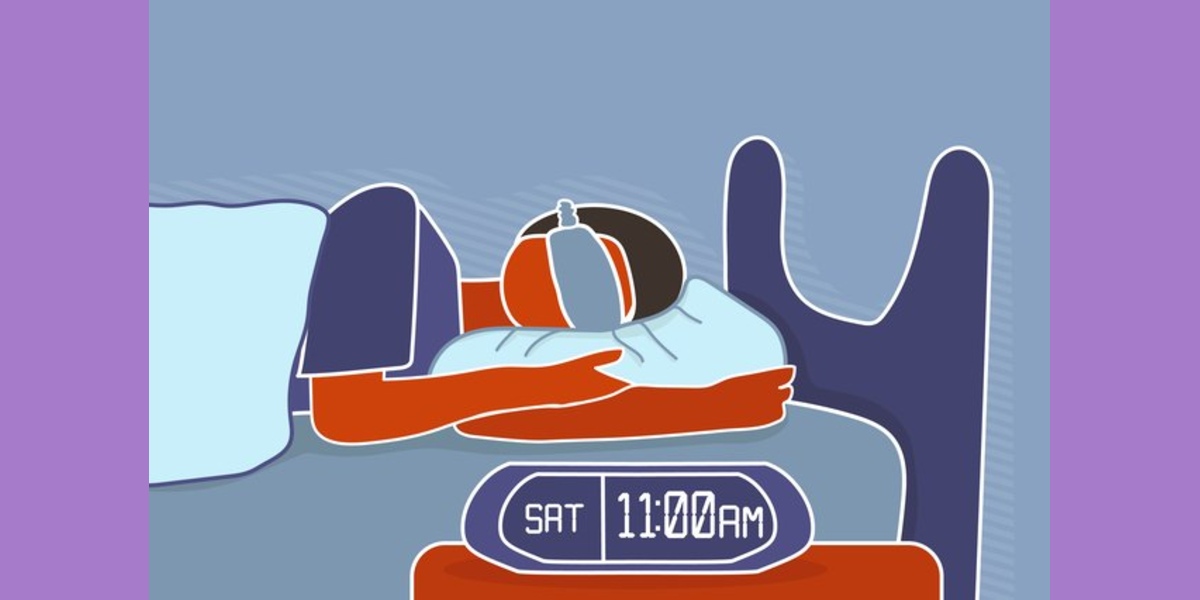Beware of hitting that snooze button too hard on weekends! Sleeping in on weekends could be bad for your health: says a recent study!
Sleeping In On Weekends Could Be Bad For Your Health
London’s King’s College researchers delved into the intriguing realm of “social jet lag,” a term that describes how irregular sleep patterns mess with your body’s internal clock, potentially causing health issues.
The study, published in the European Journal of Nutrition, involved nearly 1,000 adults whose blood, stool, and gut microbiome were scrutinized. The participants were divided into those who stuck to a steady sleep schedule and those who danced to a more erratic bedtime beat.
Surprisingly, even a mere 90-minute shift in sleep midpoint wreaked havoc on the composition of gut bacteria.
In a recent study led by senior author Dr. Wendy Hall from the School of Life Course & Population Sciences, researchers revealed a noteworthy connection between slight variations in sleep timings throughout the week and differences in gut bacterial composition.
Dr. Hall emphasized the significance of this discovery, marking it as the first study to establish such a link. The investigation, conducted as part of the Zoe Predict study, which is recognized as the most extensive ongoing nutritional study of its kind, shed light on the potential impact of circadian rhythms on the gut microbiome.
The study uncovered that individuals experiencing “social jet lag” – misalignment between their social schedule and internal body clock – exhibited lower diet quality. This was characterized by a decrease in the consumption of fruits, vegetables, and nuts, coupled with an increase in the intake of sugary beverages.
Such dietary patterns were found to influence the gut microbiome composition. Notably, three out of the six identified microorganisms in socially jet-lagged individuals’ gut were associated with adverse health outcomes, including indicators for obesity, inflammation, and cardiovascular risk.
The research also indicated that maintaining consistent sleep patterns – adhering to regular bedtime and wake-up routines – could be a simple yet impactful lifestyle adjustment with potential benefits for gut microbiome health.
Dr. Sarah Berry, Chief Scientist at health science company Zoe, emphasized the significance of this finding, suggesting that aligning sleep schedules could positively influence gut health.
This study contributes to the growing body of research investigating the interplay between circadian rhythms, sleep patterns, and gut microbiome composition.
The significance of healthy sleep patterns in promoting overall health has been highlighted in previous studies, which indicated potential risks associated with both excessive and insufficient sleep.
Research from Columbia University’s Mailman School of Public Health underscored the potential of improved sleep quality in reducing the risk of cardiovascular diseases. As the exploration of these interconnections continues, the implications for public health become increasingly evident.
While it’s no surprise that extremes in sleep – too much or too little – have their own set of problems, the King’s College study sheds light on the subtler impact of sleep irregularities.
So, next time you consider trading sleep for a lazy weekend lie-in, remember, your gut might not be as thrilled about it as you are. Maintaining a consistent sleep schedule could be a simple yet effective step towards a healthier you.








Leave a Reply
You must be logged in to post a comment.